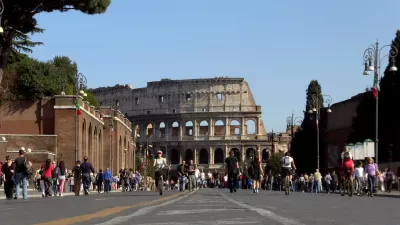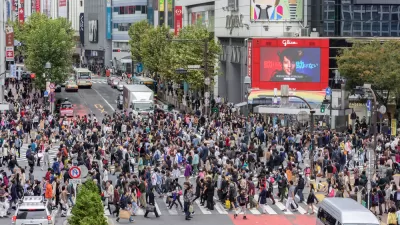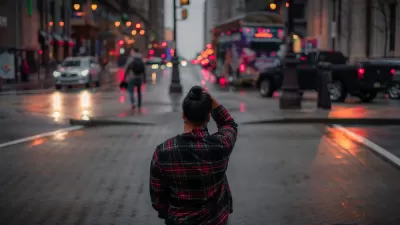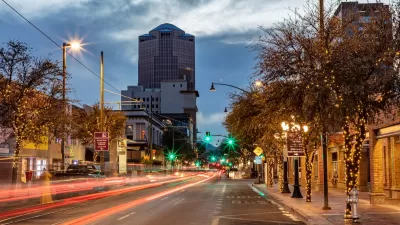With the rise of globalization, and urbanization, people are rethinking how cities should be structured in terms of transportation and mobility. Is it possible to reconfigure auto-centric cities into pedestrian-friendly spaces?

Towards a walking world
An interdisciplinary research team at Arup has spent the last six months exploring this question. The resulting publication, Cities Alive: Towards a Walking World, looks at 80 case studies around the world, identifying 50 benefits of increasing the walkability of cities and 40 actions that could be taken right now to help us reach this goal.
Perhaps most importantly, it describes 50 “drivers of change” — reasons that making cities more walkable should and could happen today. “There are the demographic factors, such as aging populations and shrinking families, leading to an increasing need for social experience to avoid isolation and social exclusion,” said Demetrio Scopelliti, an architect at Arup’s Milan office and the project’s lead researcher.
FULL STORY: Walkability reaches a tipping point

Planetizen Federal Action Tracker
A weekly monitor of how Trump’s orders and actions are impacting planners and planning in America.

Maui's Vacation Rental Debate Turns Ugly
Verbal attacks, misinformation campaigns and fistfights plague a high-stakes debate to convert thousands of vacation rentals into long-term housing.

San Francisco Suspends Traffic Calming Amidst Record Deaths
Citing “a challenging fiscal landscape,” the city will cease the program on the heels of 42 traffic deaths, including 24 pedestrians.

Amtrak Rolls Out New Orleans to Alabama “Mardi Gras” Train
The new service will operate morning and evening departures between Mobile and New Orleans.

The Subversive Car-Free Guide to Trump's Great American Road Trip
Car-free ways to access Chicagoland’s best tourist attractions.

San Antonio and Austin are Fusing Into one Massive Megaregion
The region spanning the two central Texas cities is growing fast, posing challenges for local infrastructure and water supplies.
Urban Design for Planners 1: Software Tools
This six-course series explores essential urban design concepts using open source software and equips planners with the tools they need to participate fully in the urban design process.
Planning for Universal Design
Learn the tools for implementing Universal Design in planning regulations.
Heyer Gruel & Associates PA
JM Goldson LLC
Custer County Colorado
City of Camden Redevelopment Agency
City of Astoria
Transportation Research & Education Center (TREC) at Portland State University
Jefferson Parish Government
Camden Redevelopment Agency
City of Claremont





























